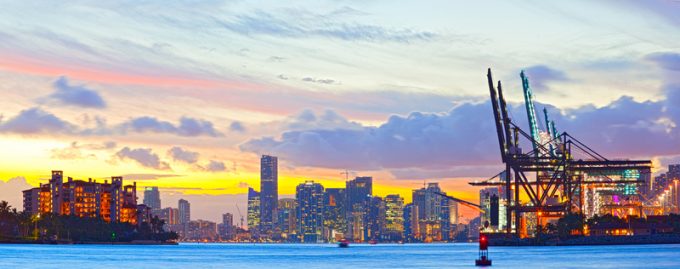FMC empowered to investigate international 'shipping chokepoints'
Donald Trump appears to have ‘weaponised’ the Federal Maritime Commission (FMC) as part of US ...

Politicians from Florida are talking-up the state’s ports as the solution to the worsening congestion threatening to snarl-up imports of seasonal merchandise beyond the selling window.
They are even flashing money to entice container carriers to change course for the Sunshine state.
Florida governor Ron DeSantis has issued stark warnings that children are in danger of going without Christmas presents, pointing to the rising number of ships sitting idle off the west coast – 82 as of this morning – waiting for ...
Maersk Air Cargo sees volumes fall as it aims for 'margin in favour of revenue'
Keep our news independent, by supporting The Loadstar
Container spot rates diverge: to Europe still falling, but firmer to the US
Hapag-Lloyd won't take bookings if port congestion leaves cargo stranded
Ecommerce likely the front-runner in resurge of transpacific trade after deal
Airfreight players eye new routes as demand on the transpacific nosedives
China-US trade tariff pause could drive a rebound for transpacific rates
Service chaos from trade ban with India a problem for Pakistan shippers
Airfreight rates ex-China 'loss-making', but hopes of a trade deal stay high
Indian coastal freight attracts major carriers, but regional tension disrupts
Serious threat to jobs in US logistics as tariffs cause economic 'stagflation'
APMM floats along on 'solid' Q1 profitability in Ocean, well prepared for choppy water

Comment on this article